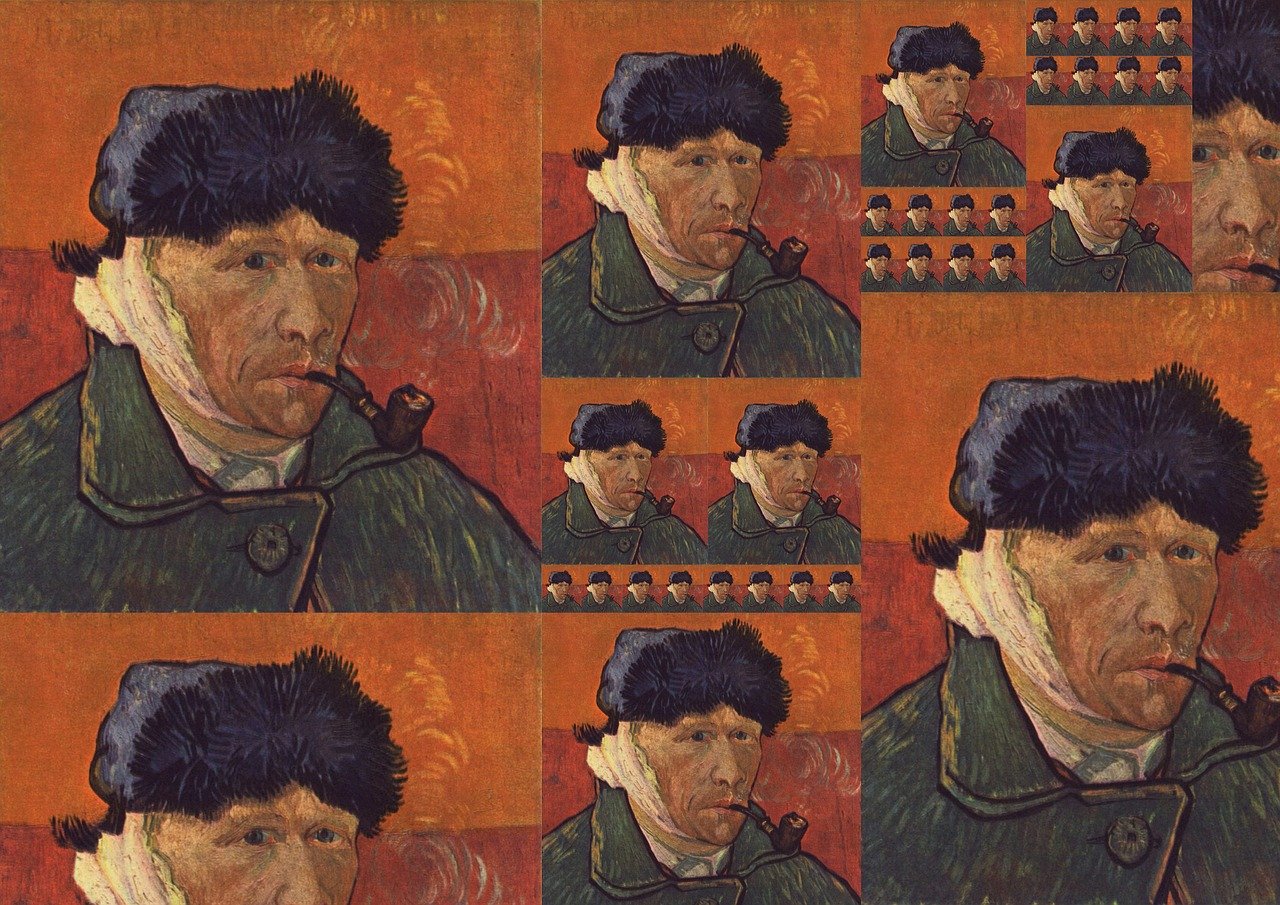
Play this as an audio file below
obsessive-compulsive disorder
obsessive-compulsive disorder (ocd) is a mental health condition that affects millions of people worldwide. It is characterized by persistent and intrusive thoughts (obsessions) that cause anxiety and distress, and repetitive behaviours (compulsions) that aim to reduce or neutralize the anxiety. People with ocd may spend hours a day performing compulsions, such as washing their hands, checking things, or arranging objects in a certain way. It can interfere with daily functioning, social relationships, and quality of life.
self-transcendence is a personality trait that reflects the extent to which a person seeks meaning and purpose beyond themselves. People who score high on self-transcendence tend to be spiritual, creative, and open to new experiences. They may also have a greater sense of connection with others and the world around them. self-transcendence can be seen as a positive aspect of personality that can enhance well-being and happiness.
Implications of self-transcendence with ocd
However, self-transcendence may also have some implications for Obsessive Compulsive Disorder. Some studies have suggested that people with ocd have lower levels of self-transcendence than people without it. This may be because it involves excessive self-focus and rumination, which can prevent a person from exploring their broader identity and values. Alternatively, low self-transcendence may be a consequence of ocd, as the condition can limit a person’s opportunities for personal growth and fulfilment.
On the other hand, some research has indicated that self-transcendence may be increased by certain interventions that target ocd symptoms, such as cognitive behavioural therapy (CBT) or psilocybin (a psychedelic substance). These interventions may help a person with ocd break free from their rigid patterns of thinking and behaviour, and open up to new perspectives and possibilities. By reducing the influence of obsessions and compulsions, a person with Obsessive Compulsive Disorder may be able to access a more transcendent state of mind, which could benefit their mental health and well-being.
ocd and self-transcendence are two concepts that have an interesting and complex relationship. Understanding how they interact may provide new insights into the understanding and treatment of ocd, as well as the potential for personal development and happiness.
Causes and symptoms of obsessive-compulsive disorder
The causes of ocd are not fully understood, but some possible factors include genetic predisposition, brain structure and function, life events, and environmental influences. Some common symptoms of Obsessive Compulsive Disorder include excessive washing or cleaning, checking things repeatedly, arranging or ordering things in a certain way, hoarding or collecting items, counting or repeating words or phrases, and having unwanted or taboo thoughts about harm, religion, or sexuality.
Available treatments for ocd
There are different treatments available for ocd, depending on the severity of the symptoms and how they affect your life. The main treatments are:
- Talking therapy: This is a type of psychological intervention that helps you understand and cope with your obsessions and compulsions. The most common and effective form of talking therapy for ocd is cognitive behavioural therapy (CBT) with exposure and response prevention (ERP). CBT helps you identify and challenge your negative thoughts and beliefs, while ERP exposes you to your feared situations or objects without performing your compulsions. This way, you can gradually learn to tolerate the anxiety and reduce your need for compulsions.
- Medication: This is a type of pharmacological intervention that helps you manage your symptoms by altering the balance of chemicals in your brain. The most common and effective type of medication for ocd is selective serotonin reuptake inhibitors (SSRIs), which are a class of antidepressants. SSRIs can help reduce the intensity and frequency of your obsessions and compulsions, but they may take several weeks to work and may cause some side effects.
- Social care support: This is a type of practical assistance that helps you cope with the impact of Obsessive Compulsive Disorder on your daily life. This may include help with housing, employment, education, finances, or personal care. You may be eligible for social care support if your ocd affects your ability to function independently or if you have other needs that require support.
- Specialist ocd services: These are services that provide intensive and specialized treatment for people with severe or complex Obsessive Compulsive Disorder that does not respond to other treatments. These services may offer more frequent or longer sessions of talking therapy, medication management, or other interventions such as transcranial magnetic stimulation (TMS) or deep brain stimulation (DBS). These services may require a referral from your GP or another mental health professional.
obsessive-compulsive disorder and transcendence
The relationship between Obsessive Compulsive Disorder and self-transcendence is complex and not well understood. self-transcendence is a personality trait that reflects a person’s tendency to search for something bigger than themselves, to be spiritual, and to get easily engrossed in activities they enjoy. According to Cloninger‘s personality model, people with ocd tend to have low self-transcendence, as well as high harm avoidance and low self-directedness.
However, some studies have found that high self-transcendence in ocd patients is associated with more severe symptoms, such as contamination and cleaning obsessions, comorbid major depression, and higher family suffering. One possible explanation is that high self-transcendence in ocd patients may reflect a form of schizotypy, which involves magical thinking, thought-action fusion, and even psychotic features.
Link with spirituality
Another possibility is that high self-transcendence in ocd patients may be related to spirituality, which could have a protective or therapeutic role in coping with the disorder. For example, some ocd patients may experience scrupulosity, which is a form of religious obsession that involves excessive worry about sinning or offending God. spirituality may help these patients find meaning and comfort in their faith, or it may exacerbate their distress and guilt.
Furthermore, some studies have suggested that psilocybin, a psychedelic substance that can induce mystical experiences and increase self-transcendence, may have beneficial effects on ocd symptoms by reducing the activity and connectivity of the default mode network, which is involved in self-referential thinking and is hyperactive in ocd patients. However, more research is needed to understand the mechanisms and implications of these findings.
People who have used self-transcendence to alleviate their ocd
There are some examples of people who have used self-transcendence to help with obsessive-compulsive disorder. For instance, some people may find comfort and meaning in their religious beliefs and practices, which may help them cope with their obsessions and compulsions. Some people may also use meditation, mindfulness, or other forms of spirituality to reduce their anxiety and stress, and to increase their acceptance and awareness of their thoughts and feelings. Some people may also engage in activities that they are passionate about, such as art, music, or sports, which may distract them from their ocd symptoms and enhance their sense of fulfilment and joy.
However, self-transcendence may not always be beneficial for people with ocd. Some people may have obsessions or compulsions that are related to their religious or spiritual beliefs, such as scrupulosity. Some people may also have low self-directedness or cooperativeness, which are other personality traits that are associated with ocd. These traits may make it harder for them to seek help or follow treatment recommendations. Some people may also use self-transcendence as a way of avoiding or escaping from their problems, rather than facing them.
Therefore, self-transcendence may have both positive and negative effects on people with ocd, depending on how they use it and how it interacts with other factors. More research is needed to understand the role of self-transcendence in ocd and how it can be integrated into effective treatment approaches.
Further reading
If you are interested in exploring self-transcendence and ocd, you may find these weblinks helpful:
Personality Traits That May Make ocd More Likely – Verywell Mind: This article explains how different personality categories, such as self-transcendence, may influence the risk and severity of ocd. It also provides some tips on how to cope with ocd symptoms. https://www.verywellmind.com/ocd-and-personality-2510482
self-transcendence IN OBSESSIVE COMPULSIVE DISORDER: AN EXPLORATORY STUDY OF PSYCHOPATHOLOGICAL, SOCIODEMOGRAPHIC AND CLINICAL ASPECTS – ScienceDirect: This study examines the association between self-transcendence and various aspects of ocd, such as comorbidity, symptom dimensions, family suffering, and quality of life. It suggests that self-transcendence may be related to spirituality and schizotypy in ocd patients. https://www.sciencedirect.com/science/article/pii/S0924977X17309501
Psilocybin and ocd – University of Arizona: This article discusses the potential of psilocybin, a psychedelic compound found in some mushrooms, to treat ocd by altering brain activity and connectivity. It also describes a clinical trial that is currently recruiting participants with ocd to test the effects of psilocybin. https://psychiatry.arizona.edu/news/psilocybin-and-ocd



0 Comments